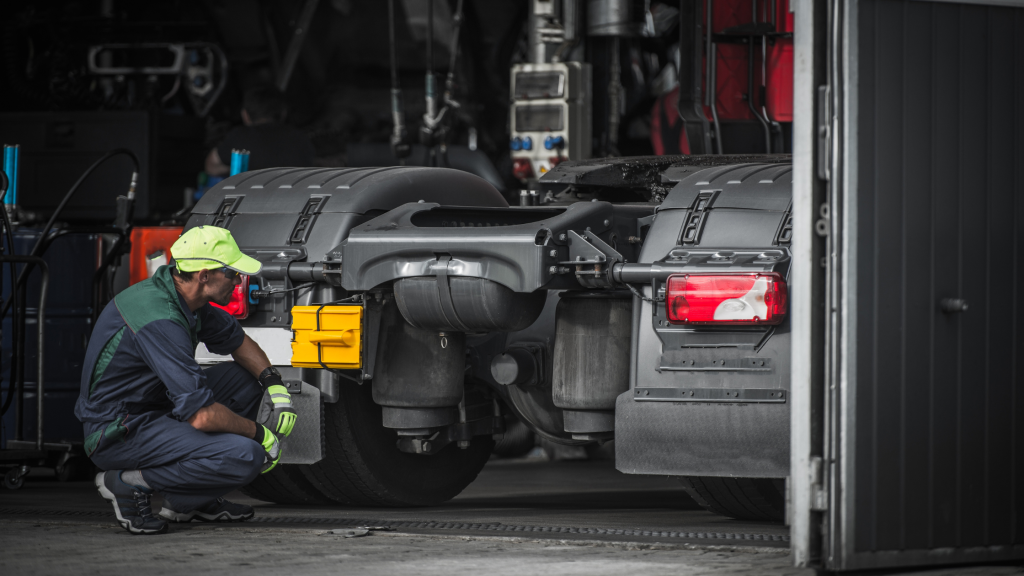In an industry characterized by high turnover rates and a persistent driver shortage, the ability of trucking companies to retain their drivers is critical to their long-term success. While attracting new drivers is essential, keeping experienced ones on board can be even more valuable. The reasons why truck drivers choose to stay with a company are multifaceted, ranging from financial incentives to workplace culture. Understanding these factors can help trucking companies build a loyal and satisfied workforce.
1. Competitive Compensation and Benefits
One of the most significant reasons truck drivers remain with a company is the compensation and benefits package. Truck driving is a demanding job that requires long hours on the road, often away from home for extended periods. Competitive pay is essential in compensating for these challenges. Companies that offer attractive salary packages, performance bonuses, and opportunities for overtime pay are more likely to retain their drivers.
Beyond base pay, benefits such as health insurance, retirement plans, and paid time off play a crucial role in driver retention. Comprehensive benefits provide drivers with financial security and peace of mind, making them more inclined to stay with the company. Companies that go the extra mile by offering unique perks, such as sign-on bonuses, retention bonuses, or tuition reimbursement for further education, also stand out in a competitive market.


2. Job Stability and Security
In an economy where job security is increasingly uncertain, the stability offered by a trucking career is a significant factor in why drivers stay with a company. Truck drivers often appreciate the steady demand for freight transportation, which translates into consistent work and reliable income. Companies that can demonstrate their stability—whether through long-term contracts with clients, a solid financial standing, or a strong market presence—are more likely to retain their drivers.
Moreover, companies that provide drivers with clear communication about their job security, especially during economic downturns or industry disruptions, help build trust and loyalty. When drivers feel confident that their job is secure, they are more likely to remain committed to the company.
3. Positive Workplace Culture and Support
The culture of a company plays a pivotal role in driver retention. Trucking can be a solitary profession, but drivers still crave a sense of belonging and support from their employers. Companies that foster a positive workplace culture—one that values respect, transparency, and communication—are more likely to keep their drivers satisfied.
Support from management is also crucial. Drivers need to feel that their concerns are heard and addressed promptly. Whether it’s related to equipment issues, scheduling conflicts, or personal challenges, companies that offer responsive and empathetic management are more likely to retain their drivers. Additionally, recognizing and rewarding drivers for their hard work and dedication can go a long way in making them feel valued and appreciated.
4. Work-Life Balance and Flexibility
Work-life balance is increasingly important for truck drivers, especially as the demands of the job can take a toll on their personal lives. Long hours on the road and time away from home can lead to burnout, making it crucial for companies to offer flexible scheduling and home time options.
Companies that prioritize work-life balance by allowing drivers to choose routes that align with their personal needs, offering flexible schedules, and ensuring adequate time off can significantly enhance driver satisfaction. When drivers feel that they can maintain a healthy balance between their work and personal lives, they are more likely to stay with the company.
5. Quality of Equipment and Technology
The quality of the equipment and technology provided by a company is another key factor in driver retention. Drivers spend a significant amount of time in their trucks, and the condition of their equipment directly impacts their comfort, safety, and job satisfaction.
Companies that invest in well-maintained, modern trucks equipped with the latest technology demonstrate a commitment to their drivers’ well-being. Features such as advanced safety systems, comfortable seating, and reliable communication and fleet management tools make the job easier and more enjoyable. When drivers know they can rely on their equipment to perform their duties safely and efficiently, they are more likely to remain loyal to the company.

6. Opportunities for Career Growth and Advancement
While some drivers are content with a long-term driving career, others may seek opportunities for advancement within the company. Trucking companies that offer clear pathways for career growth—whether through specialized training, certifications, or leadership roles—are more likely to retain ambitious drivers.
Providing opportunities for drivers to advance into roles such as driver trainers, fleet managers, or safety coordinators can keep them engaged and motivated. Additionally, offering continuous education and skill development programs not only benefits the company but also empowers drivers to take charge of their career progression.
7. Strong Driver-Employer Relationships
The relationship between drivers and their employers is fundamental to retention. Companies that cultivate strong, positive relationships with their drivers build trust and loyalty. This begins with clear communication and extends to how drivers are treated on a day-to-day basis.
Employers who take the time to get to know their drivers, understand their needs, and show genuine concern for their well-being are more likely to retain them. Regular check-ins, personalized feedback, and open lines of communication contribute to a positive relationship that encourages drivers to stay with the company long-term.
8. Focus on Safety and Compliance
Safety is a top priority for truck drivers, and companies that prioritize safety and compliance are more likely to retain their drivers. Drivers want to work for companies that have a strong safety culture, provide ongoing safety training, and ensure that their equipment meets or exceeds industry standards.
When drivers feel confident that their employer is committed to their safety, they are more likely to remain with the company. Additionally, companies that maintain a good reputation for safety and compliance can attract and retain top talent, as drivers prefer to work for employers who prioritize their well-being.
9. Effective Communication and Transparency
Effective communication and transparency are critical to building trust between drivers and their employers. Drivers need to feel informed about company policies, changes in the industry, and any issues that may affect their work. Companies that communicate openly and honestly with their drivers, providing regular updates and encouraging feedback, create a sense of trust and loyalty.
Transparency in matters such as pay, benefits, and job expectations is also essential. When drivers have a clear understanding of what they can expect from their employer, they are more likely to feel satisfied and remain with the company.
10. Recognition and Appreciation
Finally, recognition and appreciation are powerful motivators for driver retention. Truck driving is a demanding job, and drivers often go above and beyond to ensure timely deliveries and customer satisfaction. Companies that recognize these efforts and show appreciation through awards, bonuses, or even simple gestures like thank-you notes can significantly boost driver morale.
Drivers who feel appreciated are more likely to be loyal to their company and stay with them for the long term. Recognition programs that celebrate milestones, such as years of service or safe driving records, can further reinforce this sense of loyalty and commitment.
Conclusion: Building a Strong Foundation for Retention
Retaining truck drivers requires a comprehensive approach that addresses their financial, professional, and personal needs. By offering competitive compensation, fostering a positive workplace culture, ensuring job security, and providing opportunities for growth, trucking companies can build a loyal and satisfied workforce. Additionally, investing in quality equipment, prioritizing safety, and maintaining strong communication and relationships are key to keeping drivers engaged and committed.
In an industry where driver turnover is a persistent challenge, companies that focus on retention will not only reduce turnover costs but also build a more stable and experienced workforce. By understanding and addressing the factors that influence driver retention, trucking companies can create an environment where drivers feel valued, supported, and motivated to stay for the long haul.

